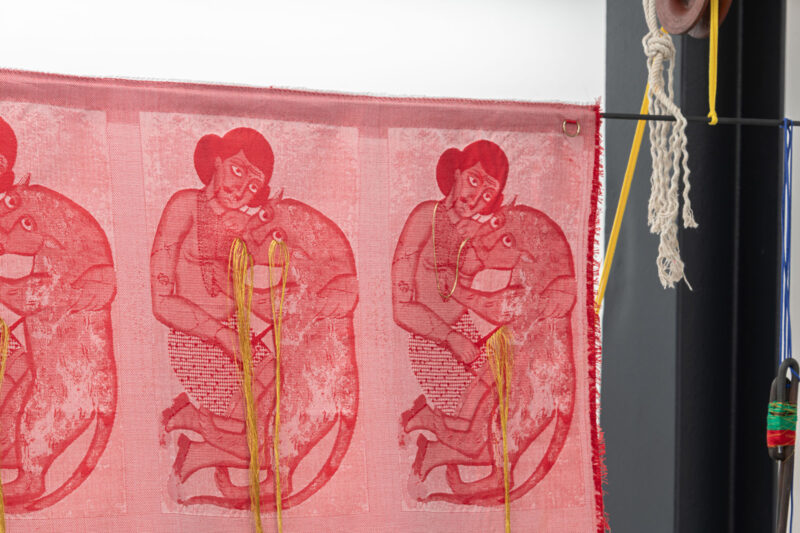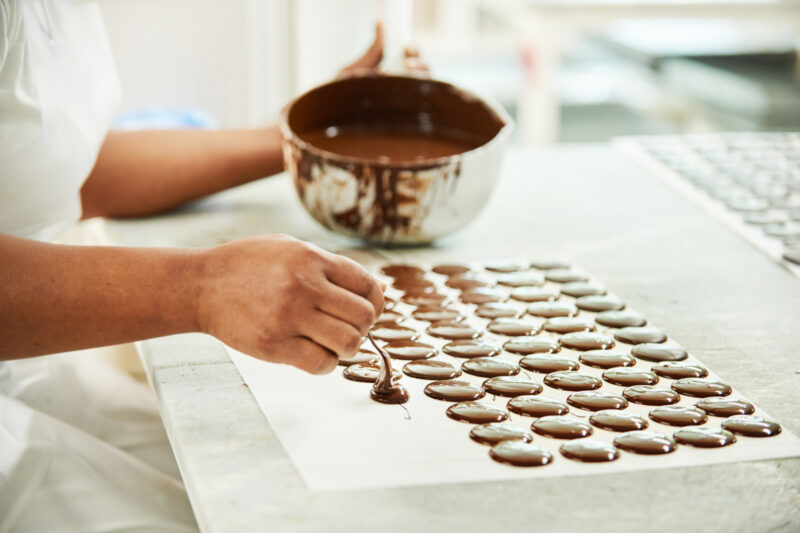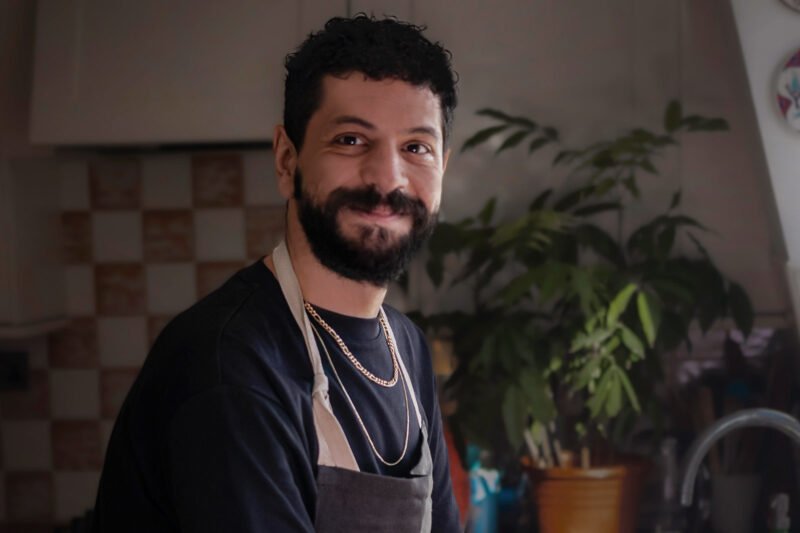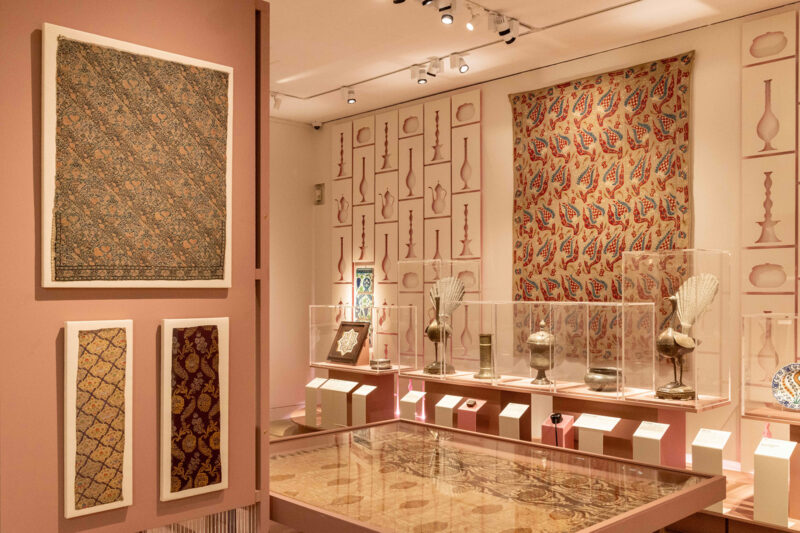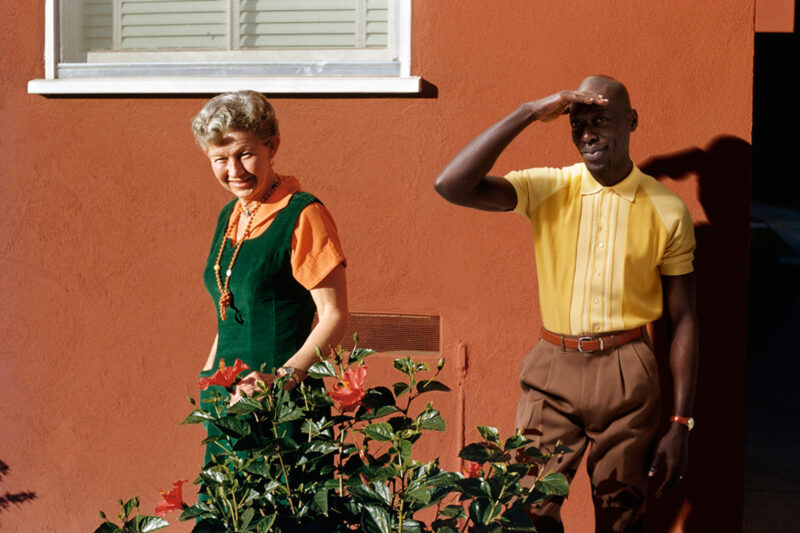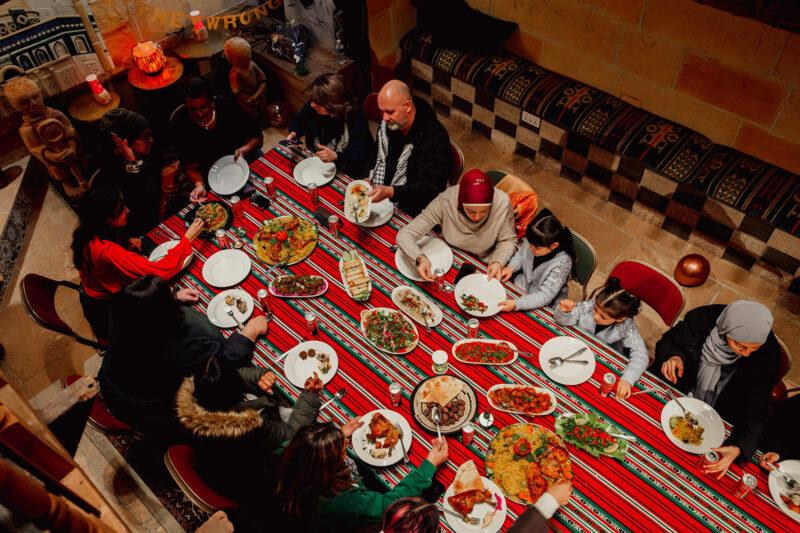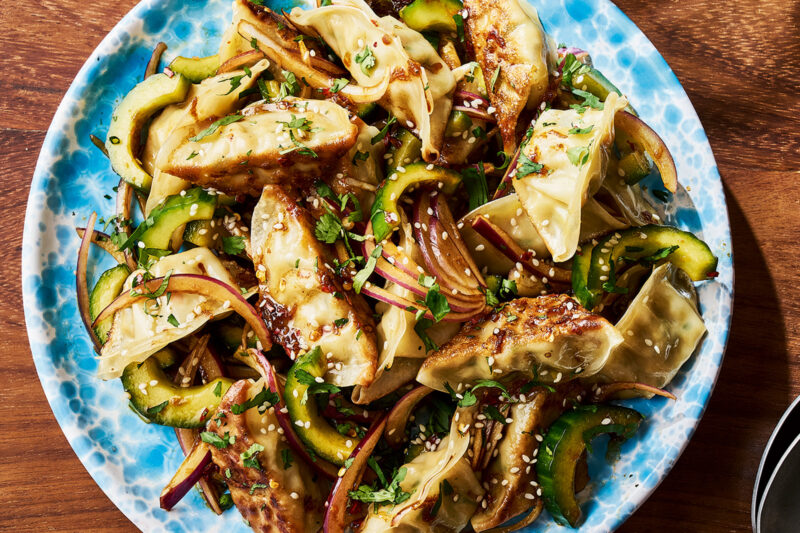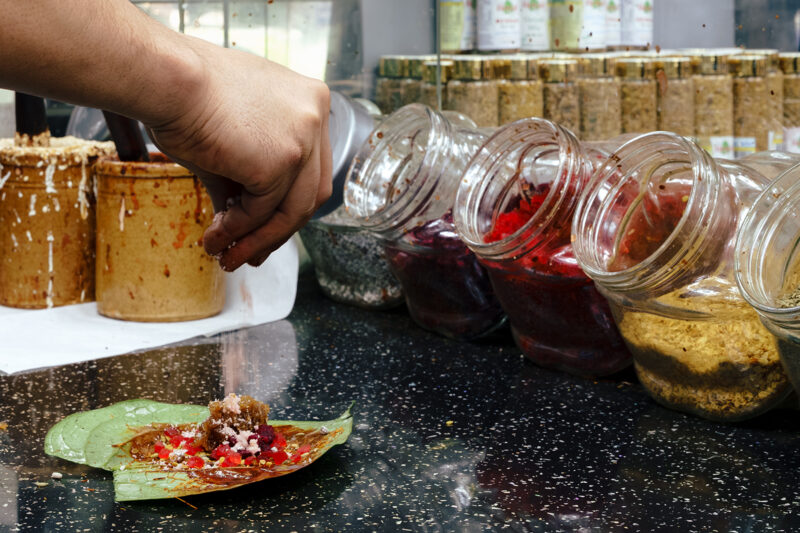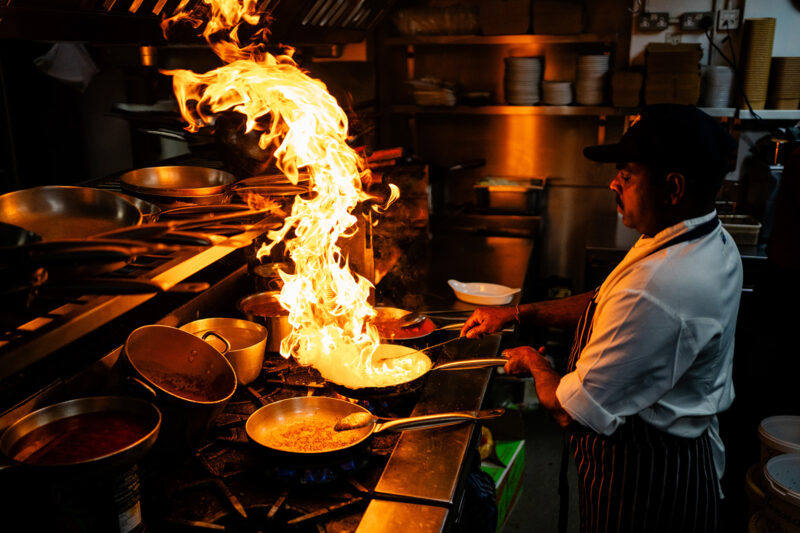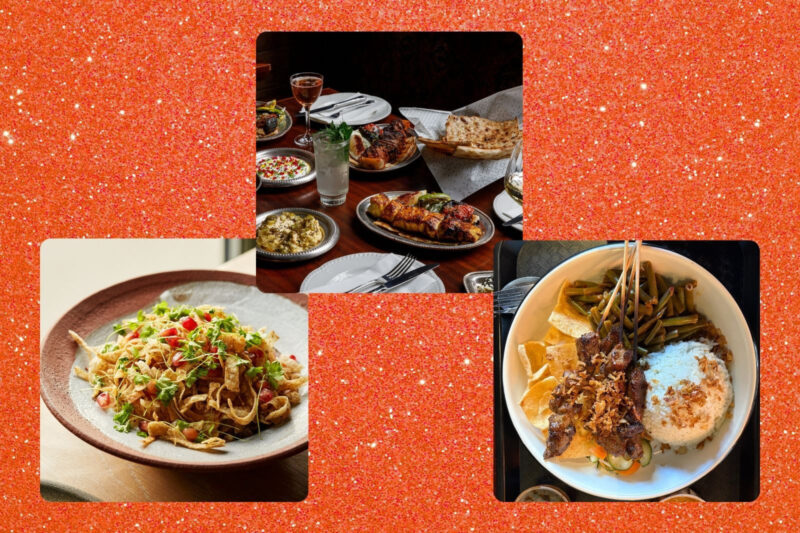Middle Eastern restaurant chains are going west
From much-loved Turkish confectioners to upscale Lebanese restaurants and Saudi coffee shops, a quiet culinary revolution is taking place
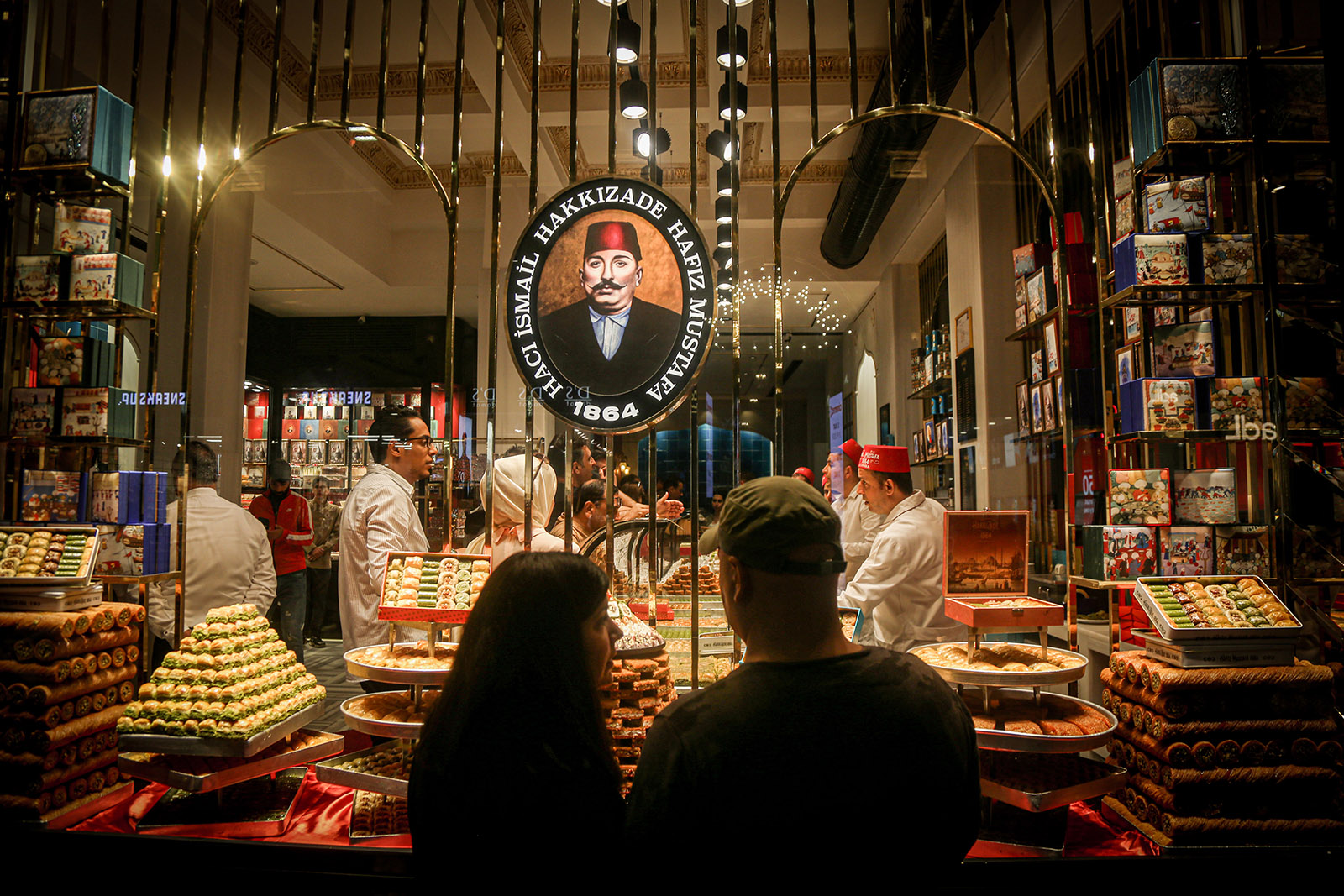
With summer suddenly upon us, annual holiday posts are filling all our social media timelines. Turkey is a perennially popular destination and, judging by the flood of pictures I’ve seen lately, it’s impossible to say that you’ve visited the country if you haven’t shared a carefully composed image of tea and sütlaç (burnt rice pudding) at Hafız Mustafa 1864.
Originally opened in the Fatih district in the late 19th century, Hafız Mustafa 1864 has become Istanbul’s most famous confectioner, with numerous branches scattered across the city. Known for its extensive selection of baklava, desserts and sweets, the chain’s rich, pistachio-studded lokum is beyond compare. The first time I tried it was a true lightbulb moment: “So, this is what Turkish delight is supposed to taste like!”
Ever since, my visits to Istanbul have included an obligatory trip to pick up ornate tins to be given as gifts or eked out square by square at home. In recent years, Hafız Mustafa has gone international. In 2019, a branch opened in Dubai Mall and another is set to follow in the Mall of the Emirates soon. In the coming months, a UK outpost will also arrive in the upmarket central London district of Knightsbridge. I have greeted that news with equal measures of delight and trepidation.
As far as I am concerned, favourite food spots in foreign cities are, in large part, made special by their distance. I have often longed for banana pudding from the Magnolia Bakery or a chicken and rice platter from the Halal Guys after coming back from New York, but would I want either anywhere near as much if they were available on my local high street? Probably not.
A memorable food experience abroad is often about much more than the food itself. While a recipe can be recreated anywhere, the anticipation, ambience and sense of place cannot. There’s also something about eating food grown, raised or sourced nearby. Those are the reasons why New York pizza slices taste the way they do and the yoghurt in Greece is always better than any imported by a British supermarket.
Still, a new trend has started to emerge in recent years. While many successful US and European restaurants have opened branches in affluent Arab countries, from Emmy Squared to Le Dame de Pic, a growing number of Middle Eastern and Turkish brands are now causing lengthy queues in the UK.
The most famous example is the 2021 London launch of Nusr-Et, the steakhouse fronted by Turkish butcher and social media personality Nusret “Salt Bae” Gökçe. His central London restaurant opened to great fanfare. However, extreme pricing and an over-reliance on gimmickry led to a series of appalling reviews.
As Turkish-owned steak chains go, CZN Burak Gurme appears to be a far better option. After building a healthy online presence with his original Istanbul restaurant chain Hatay Medeniyetler Sofrası, chef Burak Özdemir established CZN Burak Gurme in Dubai in 2020. Other branches have since opened in Qatar, Bahrain and Amman, and, in May, his first UK outpost launched in Bradford.
While Özdemir has only recently announced plans to open in London, Knightsbridge appears to be the go-to location for other chefs. Em Sherif, a world-renowned Lebanese restaurant opened by Mireille Hayek in 2011, now has an array of foreign branches, from Cairo to Monte Carlo.
I visited the Beirut original, set in a gorgeous old townhouse, in 2018 and was almost as mesmerised by the high-vaulted ceilings and glittering decor as by the food. There was no menu, just plate after perfectly executed plate of every mezze and every main dish imaginable. I left overwhelmed by both the quantity and quality of the cuisine on offer.
Em Sherif’s first European branch launched in 2022, inside the luxury department store Harrods. Now, a second restaurant is planned for Mayfair. As one might expect, the prices match the setting. Plain hummus comes in at £16, while a wagyu-topped version costs £46. Brunch dishes are around £20 each and mains start at £29. The beautiful blue tiles adorning the walls do evoke the Mediterranean atmosphere of Beirut, but are not enough to distract from the fact that you are actually sitting right next to the menswear section.
Still, that hummus, served with fresh flatbreads, is undeniably wonderful. It is hard to avoid scooping up the entire, silky bowl. But I did find myself thinking that, at £18.50 when topped with pine nuts, it was not much better than any other freshly made version a stone’s throw away on Edgware Road. The tart and refreshing fresh minted lemonade was definitely worth £6.50, though, and the soujouk eggs (£24) were a delight.
Beyond Harrods, many other Middle Eastern imports pepper the streets of central London, from the Holborn branch of Lebanese steakhouse Swiss Butter to Half Million, a Saudi Arabian cafe in Oxford Street, and the Kuwaiti restaurant Freej Swalieh in Knightsbridge.
Perhaps the best known is the original Khaleeji transplant, Chapati & Karak. In 2014, long before the unstoppable rise of Chaiiwalla began, this Qatar-based chain, specialising in South Asian tea and snacks with a Middle Eastern twist, opened on Brompton Road. When I visited, 10 years on, it was still packed with tourists from the Arabian Gulf.
Nearby, Saddle, a coffee shop from Dubai, serves the usual flat whites and cappuccinos alongside pistachio affogato and dukkah-topped croissants, all against a backdrop of Arabic calligraphy-inspired sculptures. On the Sunday morning when I dropped by, every table was full and I was forced to make my order to take away. The coffee was rich and earthy, but the freshly made chocolate-filled crepe (£8.50) managed to be disappointingly dry and rubbery.
It wasn’t the worst thing I’ve ever eaten, but it did leave me with the sinking feeling I often get when experiencing a popular restaurant or cafe uprooted from its natural habitat and dropped somewhere else. I can only hope that Hafız Mustafa is able to buck that trend, but if it doesn’t, I guess we’ll always have Istanbul.
 Newsletter
Newsletter


